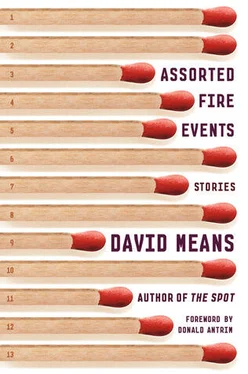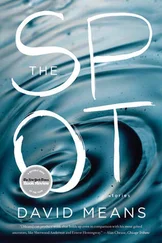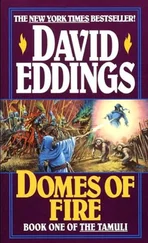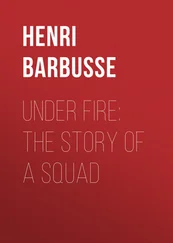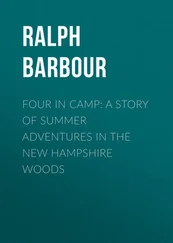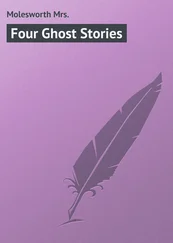David Means - Assorted Fire Events - Stories
Здесь есть возможность читать онлайн «David Means - Assorted Fire Events - Stories» весь текст электронной книги совершенно бесплатно (целиком полную версию без сокращений). В некоторых случаях можно слушать аудио, скачать через торрент в формате fb2 и присутствует краткое содержание. Год выпуска: 2012, Издательство: Faber & Faber, Жанр: Современная проза, на английском языке. Описание произведения, (предисловие) а так же отзывы посетителей доступны на портале библиотеки ЛибКат.
- Название:Assorted Fire Events: Stories
- Автор:
- Издательство:Faber & Faber
- Жанр:
- Год:2012
- ISBN:нет данных
- Рейтинг книги:4 / 5. Голосов: 1
-
Избранное:Добавить в избранное
- Отзывы:
-
Ваша оценка:
- 80
- 1
- 2
- 3
- 4
- 5
Assorted Fire Events: Stories: краткое содержание, описание и аннотация
Предлагаем к чтению аннотацию, описание, краткое содержание или предисловие (зависит от того, что написал сам автор книги «Assorted Fire Events: Stories»). Если вы не нашли необходимую информацию о книге — напишите в комментариях, мы постараемся отыскать её.
won a Los Angeles Times Book Prize, was nominated for a National Book Critics Circle Award, and received tremendous critical praise. Ranging across America, taking in a breathtaking array of voices and experiences, this story collection now stands as one of the finest of our time.
Assorted Fire Events: Stories — читать онлайн бесплатно полную книгу (весь текст) целиком
Ниже представлен текст книги, разбитый по страницам. Система сохранения места последней прочитанной страницы, позволяет с удобством читать онлайн бесплатно книгу «Assorted Fire Events: Stories», без необходимости каждый раз заново искать на чём Вы остановились. Поставьте закладку, и сможете в любой момент перейти на страницу, на которой закончили чтение.
Интервал:
Закладка:
Blasted out of the hillside years ago (during the previously mentioned burst of enthusiastic rail laying) through a series of explosions that loosened the rock enough to allow men with pickaxes and shovels to labor over the piles, the tunnel was a ragged affair, a gaping hole dripping with springwater and a dank sulfur smell; it was a wound in the earth and the kind of place the guys liked to smoke their dope and even sleep summer nights, lying against one another and close to the wet side in case the occasional freight decided to pass through, swaying and creaking. These were ugly, beastly trains that spewed diesel exhaust and slunk along as if ashamed of the decrepit tracks, taking the flat grade along the Hudson River at a snail’s pace; boxcars blemished and dented, the seals and emblems of their ownership scarred by weather, scraped clean, sprayed over — the whole hulking mess came through a few times a day, and even if the boys were in town, drinking or hanging out at the pizza parlor, they could hear it scream along the curve near the crossing grade.
It was to this tunnel that they dragged the man, yanking him along, his heels jumping over the ties, his mouth gagged with his bloodied bandage. One might wish it were otherwise, wish that these boys in their joy had decided to release him to the elements, toss him into the ragweed, the leaning stalks of wild bamboo, to rot or crawl his way back to safety; but no. The truth is that they knew as well as anyone what they were doing; there was here a scheme in place overall; the stars were aligned in certain ways and all was going as planned; if there is a God, and later, if the man was saved and taking on the deep question of his experience, he might chalk it up to (with the guidance of Reverend Simpson) a personal state of deus absconditus, abandoned in a sense like Christ on the cross; if there is no God, then this piece of blind bad luck began when he abandoned his BMW and started his trudge with great purpose, and no purpose, into the underside of the road, 9W, a road that usually took him on Friday nights to the city, over the bridge, down the West Side Highway and off at 72nd Street, to a parking garage of cool poured concrete, the thump of his car door, rubber against rubber, sounding particularly sweet echoing in those confines. At Lincoln Center he could park substrata and rise up into the concert halls without tasting fresh air: tonight it was Brahms’s Symphony No. 3 with its mysterious second theme, the Andante that fails to reappear in its expected place in the recapitulation; and the third movement, of which he was particularly fond, Poco Allegretto, so rounded and soft at the beginning it would, if he had gone, remind him of the shoulders of his wife, of a moment twenty years ago making love in a small room on Nantucket, a fall night, the wintry nor’easter blowing with a nonstop consistency that seemed to smooth the outside world away so that there was only the soft wetness beneath him, and her shoulders. Of course listening from his seat in the third tier to the right with his eyes closed he would, had he gone into the city, have idealized and sentimentalized that first night of lovemaking with the woman who was two years later to take his hand as his beloved wife. The truth of that night was different, of course: awkward kisses, teeth clicking; shame over certain deformities. He did not hear the Brahms and therefore he did not go through that particular memory. (And perhaps stepping from his car, locking and closing the door behind him, the firm crunch of his leather soles on the breakdown lane, he knew that he was avoiding this memory; perhaps, or perhaps not.) Whatever choice one makes in the matter, God or no God, the boys felt the force of chance was on their side; they had a duty to uphold, knowing as they did that this man they were yanking along still had some small trace of dignity buried in the muffled, flat cries he was making. In movies, eyes in this situation dart around, glint with fear, search the sky for something to lock on to — but his eyes wandered the darkness slowly and without resolve, as if cut loose; at the mouth of the tunnel, feeling the cool cavelike air, he became still.
He would reenter the so-called world in a half hunch, with his knees bleeding and the sky overhead showing the first hints of morning; all insect life in the brittle weeds having fallen silent, there would only be behind him and down towards the hill a powdery hum of the conveyor belts drawing stone at the tail end of the night shift. In his pain certain natural opiates would have kicked in, chemicals that sustain the body in times of great trial and allow forced marches of one sort or another — great mass gatherings of the uprooted shuffling up dust that can be seen from jets passing, the ill-fated regions of Rwanda or wherever — those abuses of such extreme measure that we hold them out as testaments of a raw ability to survive physically against extreme odds: barely standing and barely crawling, he works his way thoughtlessly down towards a crossroad where, eventually, through good fortune and timing a kind old man in a Oldsmobile Cutlass will pull over, hitching up his sagging tan pants and tucking the tail of his white dress shirt (he’s the Reverend Simpson of the Alabaster Salvation Church of Haverstraw, on his way to prepare himself for his morning duties), to greet this staggering vagabond. Perhaps because of some motion in the man’s gait (again there is a certain control, even in this state of disrepair, perhaps because of the crease of his jeans or just the way his hair, although matted with dirt and dust from the tunnel, still had what clearly was an expensive cut, a layer that took care and time to acquire; whatever it was — perhaps just a goodly sense of duty of some sort, or a moral obligation rooted in his religious beliefs that required Simpson to stop for anyone wandering in tatters, decrepit, with the sunrise welling up over the river and his shoulders and the dew-slick rails and the road dipping down into a hollow of mist — he did stop, calling politely soft excuse-me’s to the man, who on hearing him, and then seeing him, seemed seized with grief, falling to his knees with his dirty palms out and crying, breaking at that moment from his purely physical plight into something vastly emotional. It was the kind of scene that Simpson felt qualified to handle, holding this lost lamb by the naked shoulders, helping him to regain his feet and work his way by his own power up to the shuddering, ill-tuned Olds. In this beast of a car, rending their way along the edge of the river, one would hope for a conversation in which stories were slowly, through numb lips, related — not so much for the good reverend, who had little to say and needed only to nod kindly, to put his large fat palm on the leg of this shaking man, whose knees were covered with a polyester tartan blanket normally used for roadside picnics with his wife (for the good reverend was one of the last firm believers in the glories of the roadside picnic, being old enough to remember the days of the early autos, when the reality of the quick conveyance of the Model A was still somehow confused with the day-long adventures of the horse and buggy) — fueled by a lifting of weight and the elation and mercy of the pain he had traveled through: the death of his wife, financial problems, whatever ill might be construed as the cause for his act, a reason for walking alone down railroad tracks.
Last thoughts don’t come easily, last thoughts rising above the shock and pain and the roar of blood to the eardrums and colors splashing behind eyelids, the ping of water dripping off the tunnel wall, the shuffled footfalls of the boys taking their leave, leaving him behind against the wall. The tallest of the four kids leads, yards ahead of the rest. Before going, he’d leaned down with his lips right up to the old fuck’s mouth to test for any air and felt nothing, and to rest assured did a drop-kick with the toe of his Doc Martens — steel-reinforced soles of some kind of rubber that was OIL FAT ACID PETROL ALKALI RESISTANT and stood up to the toughest abrasions and work conditions, made in England, birthplace of the Industrial Revolution. His kick made the hard, solid sound of castanets snapping between the fingers of a flamenco dancer as the bones of the man’s chin — a dignified sharp chin at that — did a wishbone break. He was leading the bunch, a few yards ahead, because he finished the fuck off and was entitled to his space. All the way up the river mists were rising out of the tidal waters, and here he was reentering the world, shivering and clasping the sides of his sweatshirt before lighting up a cigarette, waiting to let the others catch up. The other guys came out of the tunnel light on the feet, kind of jumbled against one another, bumping and backslapping. As a finishing touch they’d gone back and laid the body over the tracks — an afterthought, a coda, a grand finish that would stand out as one of their great moves so far because it was certain to come, that one rattling beast of a train that always chewed up the last bits of silence the night had to offer, waking birds up and down the line, birds that would hawk and chirp stupidly in their sudden intense hunger; that train, an old New York Central engine repainted with Conrail colors, would haul a chain of some fifty or so beleaguered cars; they’d be down in the shithole diner tasting the weak coffee and eating eggs when the train rounded that bend in the river; they’d have their elbows fixed to the formica tabletop and the slick-headed one would be saying Fucking A, it’s a fucking trip, man. I mean fuckin’ A, do you hear what I’m hearing man? while the others nod and allow themselves a few minutes of silence — not even a nervous Fuck muttered — a brooding contemplation deep and spiritual, full of weight, or weightless of morals, of God or no God, as their stars aligned or unaligned, depending on how you see it. The body was found a half mile down the track by the engineer, who saw it first in the disk of his headlight and began the immediate emergency procedure for stopping a thousand tons of stock, air breaks and friction breaks both applied, turning away so he wouldn’t have to see the impact — actually he’d never see it anyway, hidden by the front of his locomotive, but turning anyway out of respect for the about-to-die. The body lodged up under the coupling, or parts of it at least: divided cleanly, the legs stayed back in the tunnel.
Читать дальшеИнтервал:
Закладка:
Похожие книги на «Assorted Fire Events: Stories»
Представляем Вашему вниманию похожие книги на «Assorted Fire Events: Stories» списком для выбора. Мы отобрали схожую по названию и смыслу литературу в надежде предоставить читателям больше вариантов отыскать новые, интересные, ещё непрочитанные произведения.
Обсуждение, отзывы о книге «Assorted Fire Events: Stories» и просто собственные мнения читателей. Оставьте ваши комментарии, напишите, что Вы думаете о произведении, его смысле или главных героях. Укажите что конкретно понравилось, а что нет, и почему Вы так считаете.
